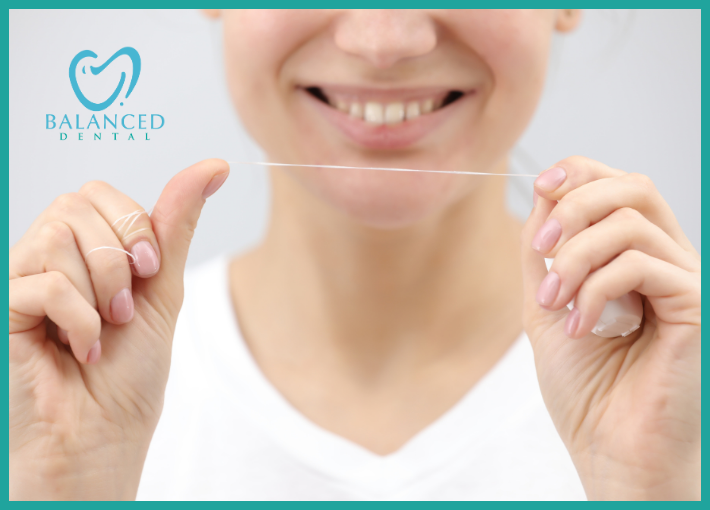Your mouth harbors a bustling ecosystem of bacteria, some beneficial and some not-so-friendly. This delicate balance can be disrupted by factors like diet, stress, and medication, leading to problems like bad breath, gum disease, and even overall health issues. Learn about the potential of oral probiotics and transform your oral health. If you have any questions on anything related to your best oral health, come and see us! Dr. Jackson and his team are here to ensure your every question is answered and your every concern is addressed.
Probiotics are healthy bacteria. They’re mostly known for their impact on digestive health. But research is starting to show that they can help keep your mouth healthy, too.
The U.S. Food and Drug Administration has not yet approved oral probiotics for any medical use. But several studies suggest that probiotics can benefit your oral health. Here’s what the research says about five possible benefits of oral probiotics:
1. Prevent plaque
We all have many different types of bacteria in our mouths. Some of them cause plaque. A study from 2016 found that a strain of bacteria known as A12 can help fight a cavity-causing bacterium called Streptococcus mutans. S. mutansturns sugar into lactic acid. This creates an acidic environment in the mouth that leads to cavities and plaque. The researchers grew both types of bacteria together in the lab. The A12 bacteria stopped the S. mutans from growing and from making any plaque.
2. Fight bad breath
Several studies have looked at whether probiotics can help fight bad breath. Bad breath is often caused by bacteria in your mouth or gut. One study had 23 people use an antimicrobial mouthwash and then take either a placebo or a supplement with the probiotic Streptococcus salivarius for three days. They found that 85 percent of the people who took the probiotic had major reductions in the amount of bacteria that caused the bad breath.
More research needs to be done to prove how well oral probiotics can fight or prevent bad breath.
3. Prevent oral cancer
A study from 2013 found that a bacterium called Lactobacillus salivarius reduced oral cancer in rats. More studies need to be done to confirm this benefit.
4. Manage symptoms of gingivitis
A study from 2006 suggests that probiotics can reduce symptoms of gingivitis. Gingivitis is also known as gum disease. It can cause swollen, tender gums and sensitive teeth.
The researchers gave 59 people with gingivitis a supplement containing either a probiotic bacterium known as Lactobacillus reuteri or a placebo. The participants returned two weeks later. The researchers found that the gingivitis symptoms had improved the most in the group taking the highest dose of probiotics. The people taking probiotics also had less plaque.
5. Decrease inflammation from gum disease
Research suggests that probiotic bacteria may help manage inflammation from gum disease. A 2007 study showed that people who took supplements containing the bacteria Lactobacillus brevis had decreased inflammation. Another study found that drinking probiotic milk daily decreases oral inflammation.
Are there any side effects of oral probiotics?
Probiotics are generally safe. However, you should avoid taking them if you have a high risk of infection due to conditions such as HIV. Children, seniors, and pregnant women should avoid taking high levels of probiotics without talking to their doctor first.
You should not exceed the recommended dosage of probiotics given by manufacturers. Always talk to your doctor before you start taking any supplements.
Probiotic foods and supplements to add to your diet
You can take probiotics in food or supplement form. The best food sources include enriched or fermented foods:
Probiotics
- enhanced milk
- yogurt
- soft cheeses
- kefir
- miso
- tempeh
- kimchi
- sauerkraut
- sourdough bread
- sour pickles
You can find probiotics in concentrated forms as supplements. These may be pills, powders, or even mouthwashes. Supplements can be more concentrated than probiotics you find in food. People with a high risk for infections should be extra cautious when taking concentrated supplements.

Some doctors and dietitians recommend that you take probiotic bacteria with substances called prebiotics. These are foods and supplements that help probiotics flourish in your intestines. This includes both the healthy bacteria that naturally inhabit the intestines as well as other probiotic bacteria. Prebiotics are typically high in fiber:
Prebiotics
- raw garlic
- onions
- raw dandelion greens
- less ripe bananas
- artichokes
- chicory root
- acacia gum
- raw leeks
- raw asparagus
- raw honey
- raw jicama
Imagine a healthier, happier smile with the power of oral probiotics! At Balanced Dental, we prioritize your safety and well-being — we’re dedicated to your whole-body health. Schedule your next dental checkup today at 772.247.2407. Follow our Instagram for more dental tips.
Reference: [https://www.healthline.com/health/oral-probiotics]












